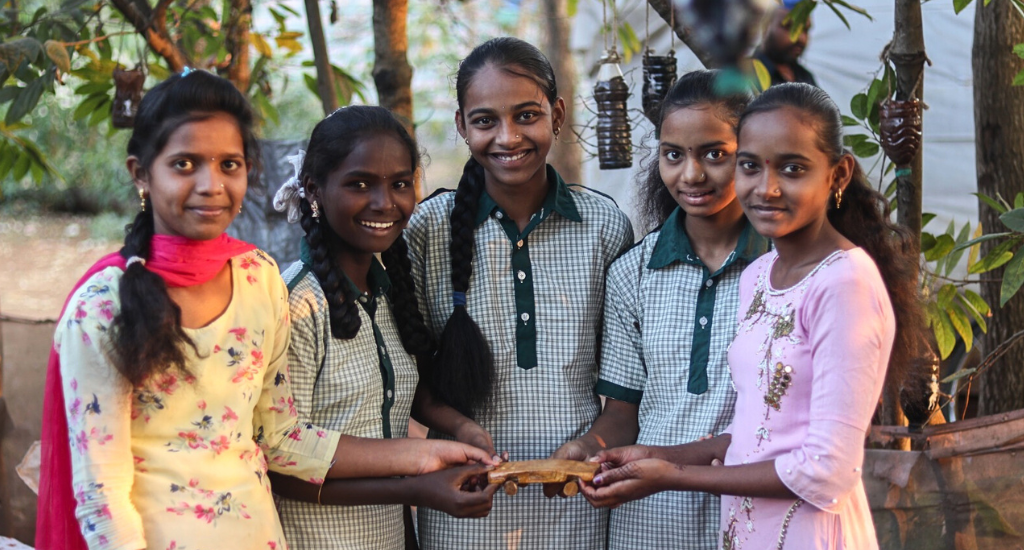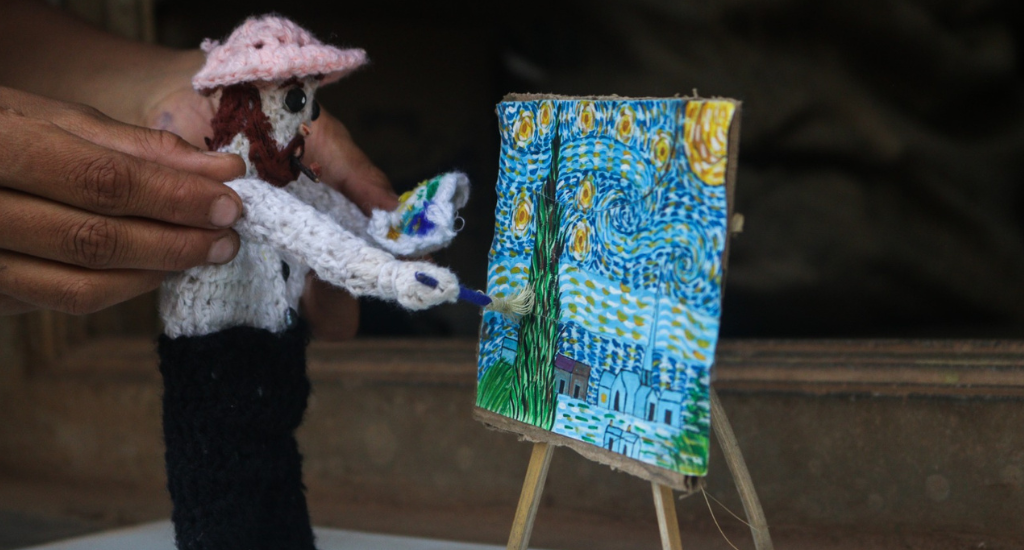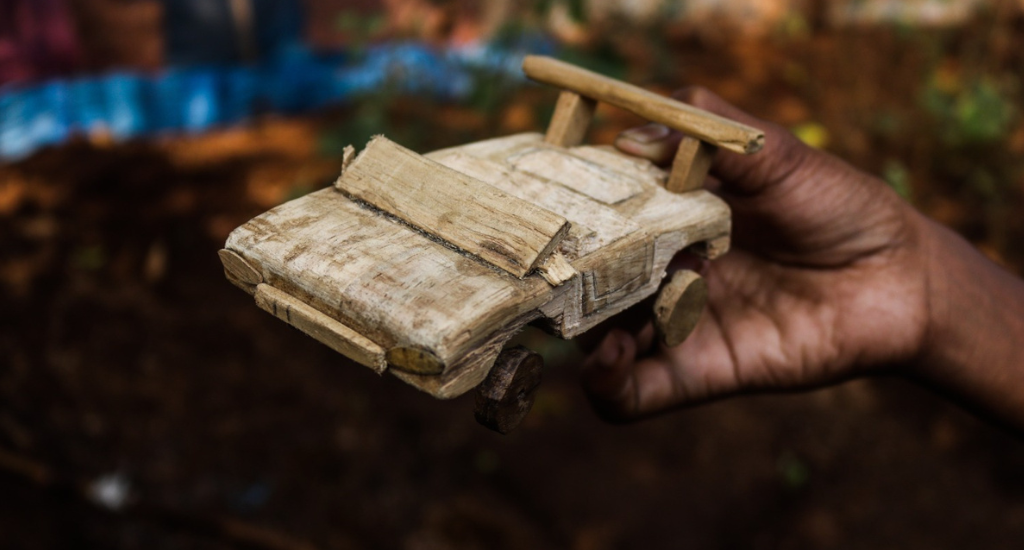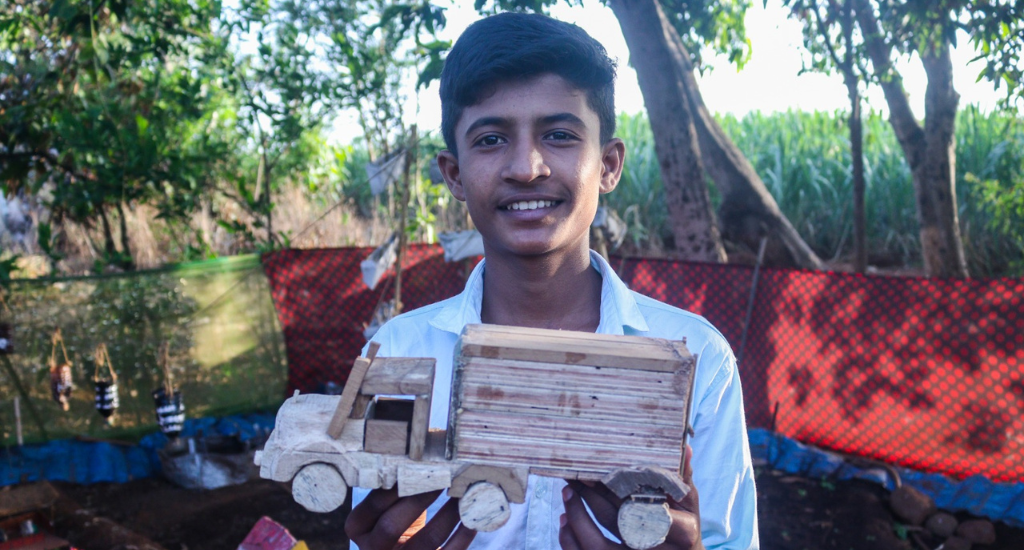
Where children decide what to learn and when
In four villages of Kolhapur, children design their own curriculum and learn at their own pace from local women mentors who had dropped out of school.

In four villages of Kolhapur, children design their own curriculum and learn at their own pace from local women mentors who had dropped out of school.
Throughout his school life in Bhadole village of Kolhapur district, Rahul was labelled as a child with a ‘learning disorder’. Rahul, who belongs to a displaced community, converses in his native language Marathi. This made it harder for the shy boy to adjust to the tough demands of mainstream education, where the subjects were taught in Hindi and English.
His struggle to cope with the system and being frequently mocked as a ‘slow learner’ in class adversely affected Rahul’s self-esteem. So much so that the 14-year-old began to dread school.
Rahul’s story is not an isolated case. Figures from the Ministry of Education show that the national dropout average for secondary level education in India was at 12.6 percent in the year 2021-2022 and 3 percent at upper primary level.
The reasons behind children dropping out of school vary from poverty and distance from school to parents’ negligence towards kids’ education and lack of interest or inability to manage the curriculum.
Also Read: Involving rural parents in children’s education

Though Rahul never dropped out of school, he didn’t attend classes regularly, as he was constantly made aware of his inability to learn at the other students’ pace.
Things took a positive turn after he joined Solidarity Art Farm in his village, a project run under a creative collective called Insight Walk. He found company in children like him – not slow but differently smart.
Solidarity Art Farm is one of the projects of Insight Walk. The art farm encompasses a museum of dying arts, organic cultivation of vegetables and understanding science using discarded materials.
Insight Walk was launched in 2017 by leadership coach Subodh Jain and Sanket Jain, a journalist by profession. With just a couple of students, the first centre was opened in Dhakale, a small hamlet in Bhadole village.
Watch: Right to education: Where there is a wall, there is a way

The farm was aimed at creating a safe and creative space where the children could learn multiple skills based on their interests, with the help of local mentors and community members. They could design their own curriculum driven by curiosity, low-cost innovation and problem-solving approach towards things.
“I believe that every child is entitled to an education as it is imperative for social, political and economic growth of any country. So our simple idea was that education should be local, contextual and affordable,” said Subodh Jain.
The children’s work reflects Subodh Jain’s words.
Intrigued with the impact of climate change on animals and birds, Rahul began to take a keen interest in wildlife and started projecting it on art canvases through hand-embroidery.

“At our farm kids use a thread and a needle to solve their real-life problems,” explained Subodh Jain. “Children, irrespective of their gender, are taught sewing to be able to stitch school bags, stationery pouches and other useful stuff. From making toys from trash, learning wood carving – typically a male dominated work – to dabbling in various subjects like agriculture and climate change, children at the farm essentially take practical lessons.”
Rahul started spending hours in the farm making portraits of animals like tiger and bear through hand embroidery. It took 100 hours to make a leopard and 200 hours to embroider a buffalo, making him confident about his newly discovered dream to become a wildlife conservationist.
Also Read: ‘Education should make people capable of helping others’
Thanks to the renewed confidence, Rahul cleared his class 10 examinations last year and is currently learning more about wildlife conservation under science stream.
Another goal of the founder duo was to address the high dropout rate among girls, especially those from marginalised communities.

The mentors are community women, who’d had to discontinue their own education for various reasons. These women are selected through a teaching fellowship. The women mentors were initially ridiculed by the men of the community as they did not possess a formal degree. Thirty-year-old Alka regained her confidence after joining the initiative, just like her student Rahul.
“It’s been four years since I started mentoring kids at the farm. When I look back, I can’t imagine the tremendous change that I have experienced in myself,” said Alka, who holds a bachelor’s degree in Marathi literature and history.
“What other people say does not affect me as long as I teach something new to my students,” added Alka, who dreams of becoming a historian and a painter like “Vincent van Gogh”.
With no fixed time to begin or end the classes, over 400 students and four mentors gather throughout the day at the farm and learn life skills like local innovation, stitching, environmental changes, art and craft, theatre and painting.
Also Read: Smartphones bringing kids closer to studies in rural India

Entirely run through crowd funding and supporters’ donations, Solidarity Art Farm has become an important space for learning and dreaming for several students and mentors in four villages of Kolhapur.
“I just want this to run the way it’s running. The programme is children dependent, fellow dependent, and community dependent,” said Subodh Jain.
The lead image at the top shows girls at the Solidarity Art Farm learning through practice (Photo courtesy Insight Walk)
Jyoti Thakur is a Delhi-based independent journalist who covers gender, environment and social justice. She was a Rural Media Fellow 2022 at Youth Hub, Village Square.